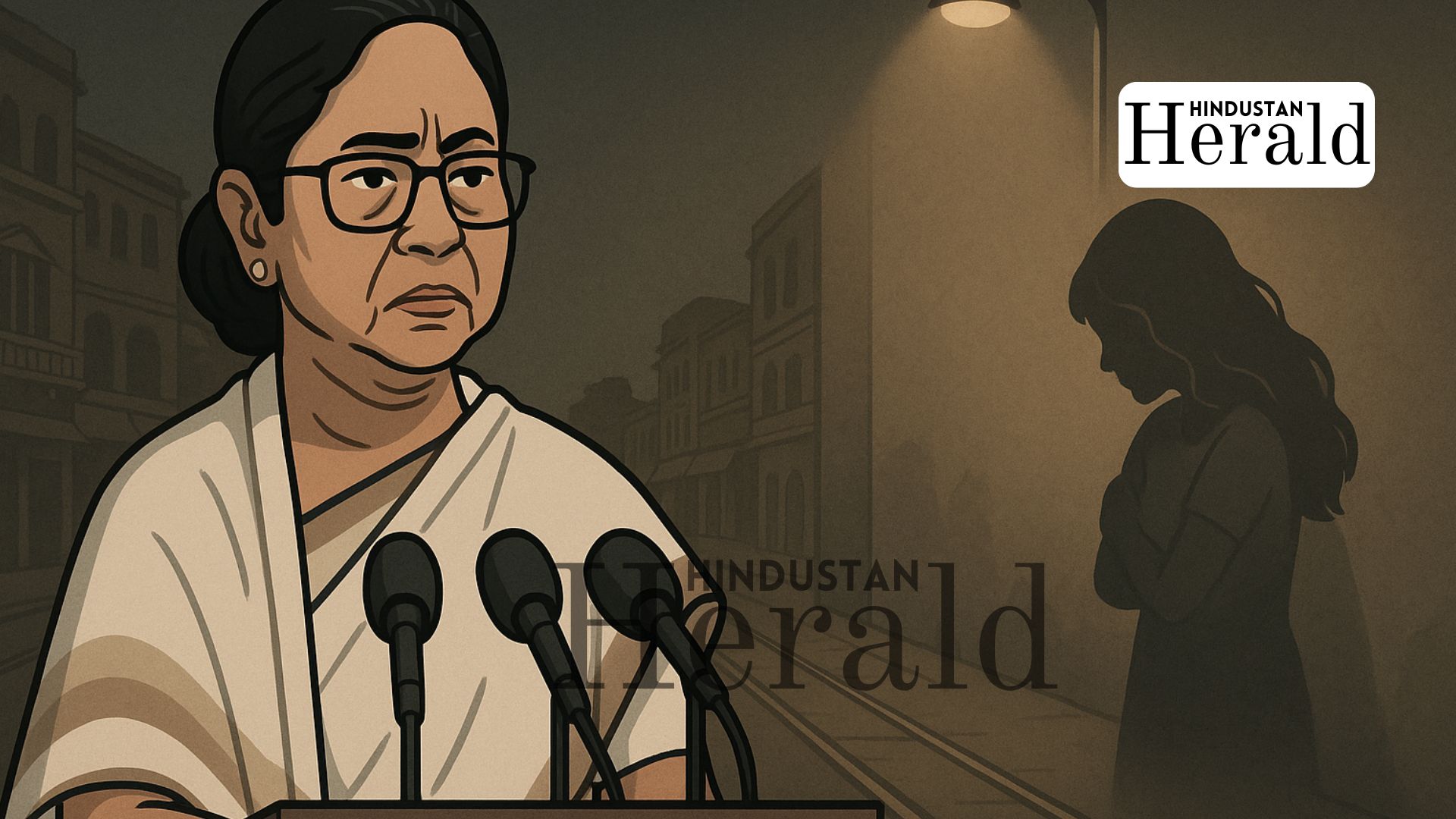Kolkata, October 14: It was a little past one in the morning when I reached near RG Kar Medical College. The streetlights flickered, half of them dead, half trying to work. A couple of tea stalls were still open, but the city was holding its breath. Most cabs had gone, drivers too afraid to hang around. I remember standing near the barricade, hearing women crying, someone shouting at the police, someone else trying to console them. It was chaos, but also quiet in a strange way. I didn’t move. Couldn’t. That same feeling came back when I heard what Chief Minister Mamata Banerjee said about the Durgapur gang rape. She asked, almost casually, “Why were they allowed to go out at night?” That one line said too much. It carried that same old logic, the kind that keeps circling back to the woman, not the men who did it.
The Case Itself
The survivor is a 23-year-old MBBS student from Odisha, studying at a private medical college in Durgapur. She had gone out for dinner with a classmate. Nothing unusual. CCTV shows them stepping out around 8 p.m., returning, and going back out again later. Somewhere in between, she was attacked, dragged, beaten, and raped.
The police have arrested three men. A few more might still be involved. The National Commission for Women has already written to the college, asking it not to penalise her academically. On paper, the system is working. But anyone who has covered these cases knows how slow the ground really moves.
Then came that comment. The Chief Minister said the campus shouldn’t have let students out so late because it’s a “forest area.” People erupted not just online, but in homes, in cafés, in classrooms.
What Those Words Really Meant
It’s not new. Every time a woman is attacked, the country finds a way to blame her. Her timing. Her clothes. Her company. Her choices. It’s a neat trick that saves everyone else from looking in the mirror.
That’s what the CM’s statement did. It shifted the gaze away from the rapists and straight onto the girl. A few hours later, Banerjee said her words were “twisted” and “taken out of context.” Maybe they were. But the truth is, it doesn’t matter. When a leader speaks like that, it tells everyone listening that women’s freedom is conditional.
I’ve seen how that plays out on the ground. Police officers hesitate to file FIRs. Wardens tighten hostel rules. Families start whispering warnings to daughters. Everyone talks about safety, but nobody talks about accountability.
A Culture That Won’t Let Go
If you’ve ever covered gender violence in India, you know the pattern. It’s not just about crime; it’s about attitude. Women are always expected to explain themselves.
The irony is, no one asks the same of men. No one says, “Why was he out so late?” or “Why was he drinking?” The system was never built to question them.
I’ve been in too many press briefings where officials said, “She shouldn’t have been there.” I’ve seen reporters hesitate before writing the word “rape” in copy, as if it dirties the page. The discomfort is everywhere, even in how we talk about it.
Political Noise, Little Empathy
The backlash was immediate. Kiren Rijiju accused Banerjee of victim-blaming. Odisha’s Deputy Chief Minister Pravati Parida called the comment “heartless.” Social media picked sides, hashtags trended for a day or two. The noise was loud, but it felt hollow, like everyone was shouting without listening.
Because, truthfully, this story isn’t about political camps. It’s about a mindset that doesn’t care who’s in power. Left, right, centre, it’s the same when it comes to women. We still don’t see them as people who have the right to live without permission.
That Night, Years Ago
When I think about what happened in Durgapur, I remember that other night outside RG Kar. The fear. The smell of sweat, hospital antiseptic, and cheap incense someone had lit near the gate. The sound of someone sobbing into a phone. You don’t forget that.
That night, no one asked why she was out late. They didn’t have to. The grief said it all. And still, years later, we’re asking the same old question.
Mamata Banerjee could have said something different, that the state failed, that the men will be punished, that women deserve better. She could have stood with the survivor instead of questioning her choices. But she didn’t.
What Needs Saying
Every time someone powerful blames a woman for her assault, another girl somewhere in this country goes silent. She decides not to report. Not to tell her parents. Not to walk home alone ever again.
That’s what’s really at stake. Not one case, not one comment, but the daily shrinking of freedom, the slow erosion of trust.
If safety means staying locked in, then it isn’t safety at all. It’s surrender.
And Still
The city will move on. It always does. The news will fade, the outrage will flatten, the survivors will be left with their own noise in their heads. But I keep thinking back to that night near RG Kar, standing alone, notebook in hand, trying to make sense of the screams.
I remember thinking how heavy the word duty can feel when you’re standing in a place that smells of blood and fear. And how easy it is, years later, for someone in power to speak without thinking to turn all that pain into a question about why she stepped out at night.
Stay ahead with Hindustan Herald — bringing you trusted news, sharp analysis, and stories that matter across Politics, Business, Technology, Sports, Entertainment, Lifestyle, and more.
Connect with us on Facebook, Instagram, X (Twitter), LinkedIn, YouTube, and join our Telegram community @hindustanherald for real-time updates.
Covers Indian politics, governance, and policy developments with over a decade of experience in political reporting.






